Preparing the Next Generation: UNGA 2019
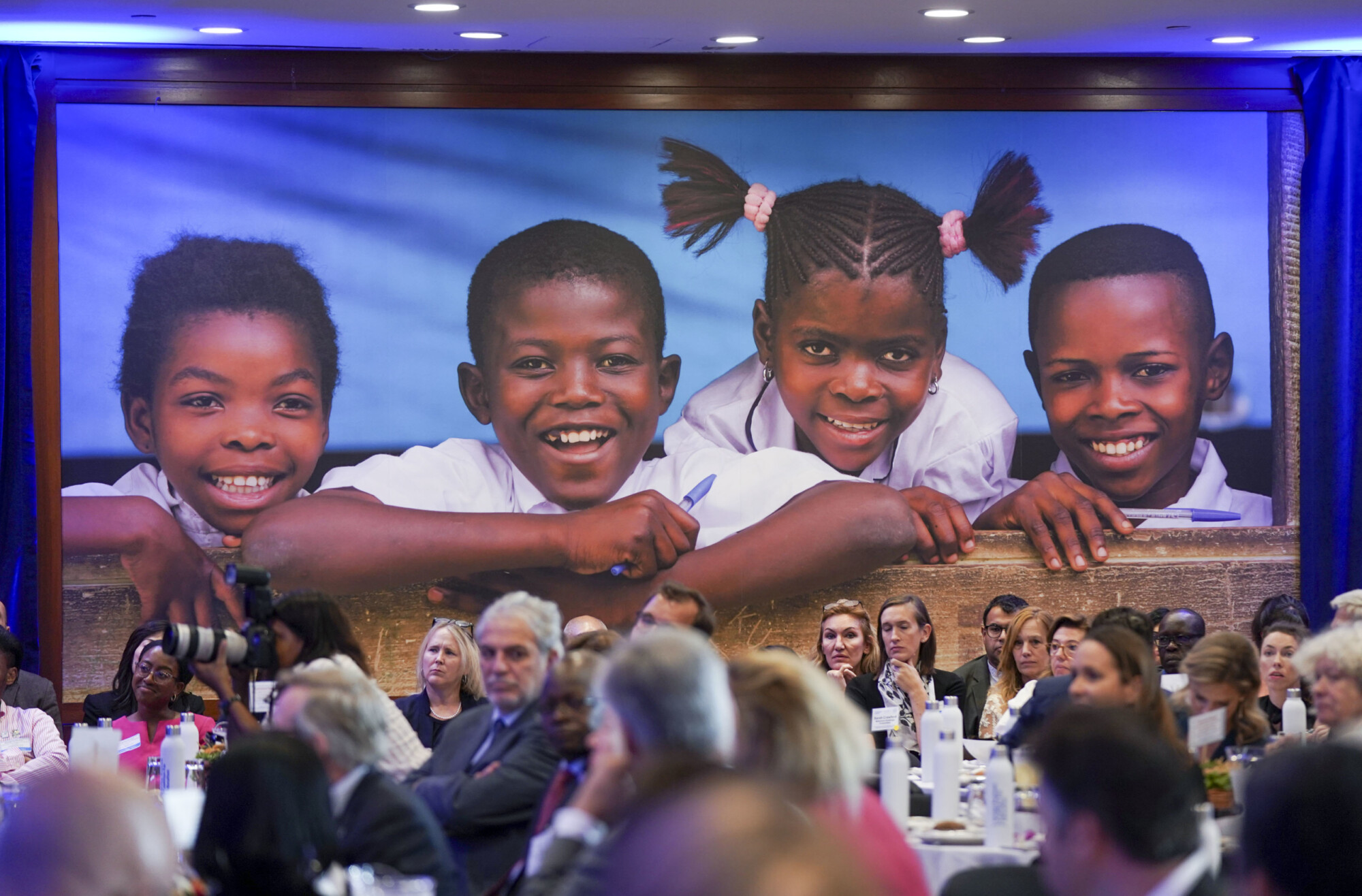
Estimates indicate that by 2030, there will be 1.5 billion school-age children in low- and middle-income countries. The new 2030 Skills Scorecard from the Global Business Coalition for Education (GBC-Education) and the Education Commission predicts that, if current trends continue, well over half of those young people will not be on track to acquire the most basic skills they need to succeed in the workforce.
To address the growing skills crisis, GBC-Education partnered with UNICEF’s Generation Unlimited to host an annual luncheon during the 74th Session of the United Nations General Assembly (UNGA). Reimagining Education: Preparing the Next Generation with Skills for the Future brought together a group of 150 diverse, high-level global leaders from business, government, and civil society advocating alongside young people to secure new partnerships, innovative solutions, and new investments.
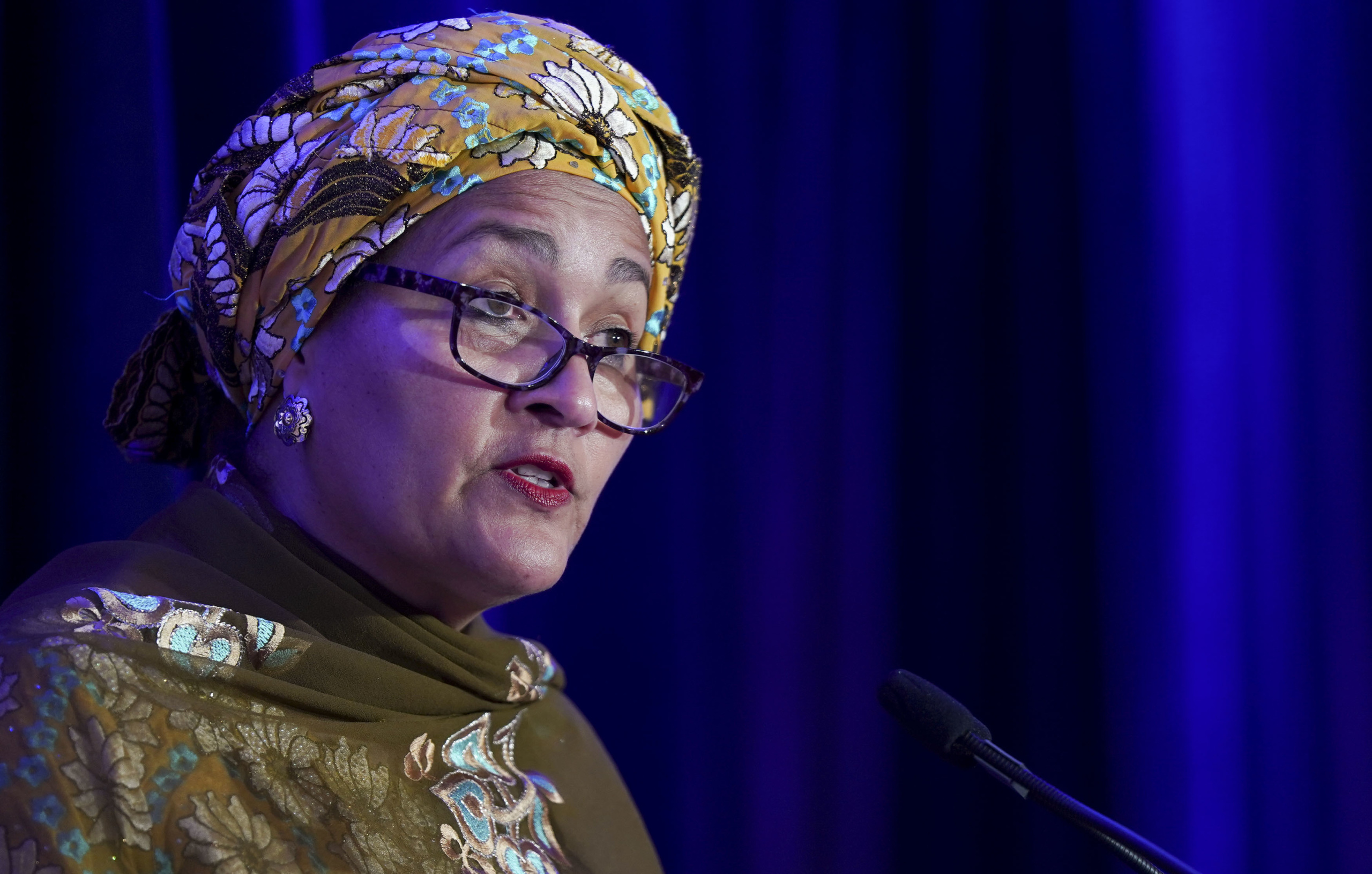
“A re-imagined education is an equitable education because education should not reinforce inequality.”
Amina J. Mohammed, Deputy Secretary-General, United Nations
(Photo: Leigh Vogel / GBC-Education)
The event opened with remarks from United Nations Deputy Secretary-General Amina J. Mohammed, UNICEF Executive Director Henrietta Fore, and GBC-Education Executive Chair Sarah Brown. These leaders in education stressed the positive social and economic impacts of investing in secondary education to equip youth with modern skills like workforce readiness, entrepreneurship, soft skills, and technical skills.
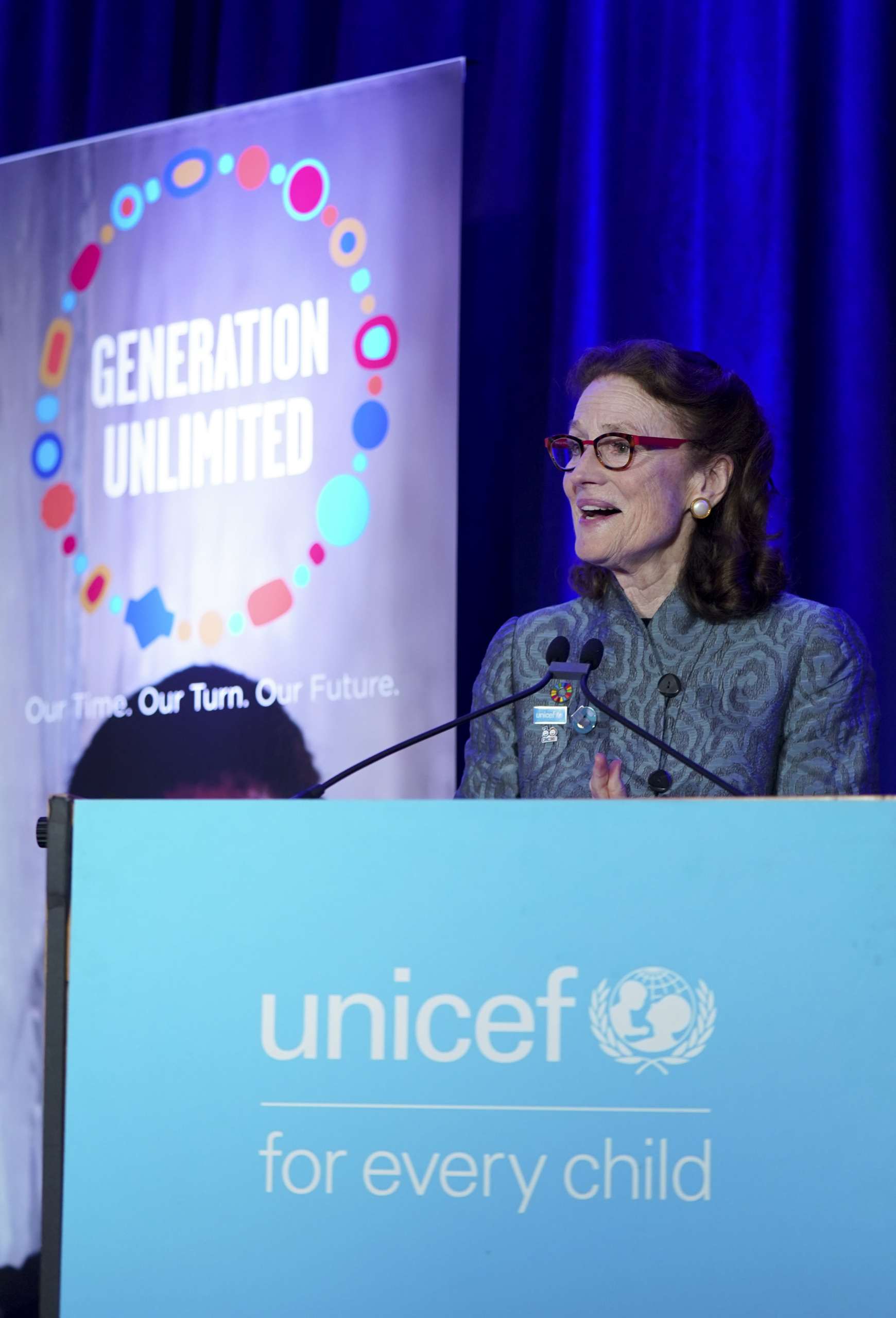
“Join us in this very important cause, in this important movement for young people. Invest in bold, bankable, and breakthrough ideas.”
Henrietta H. Fore, UNICEF Executive Director
Education
(Photo: Leigh Vogel / GBC-Education)
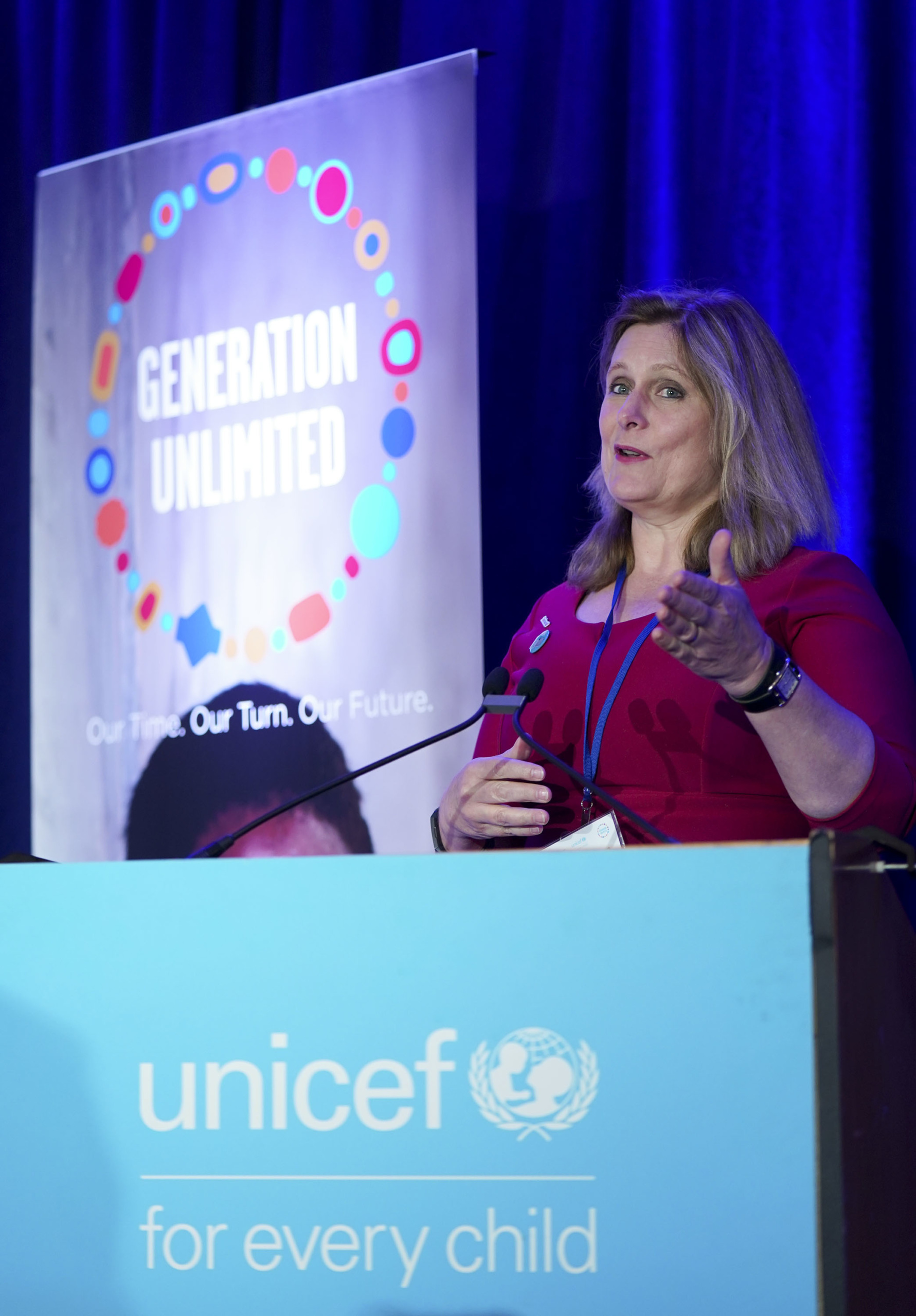
“The private sector piece is key – we cannot do this with just the public sector and governments -the next piece is the private sector is critical. We need to stretch ourselves. We need to step up into the space and do more.”
Sarah Brown, GBC-Education Executive Chair
(Photo: Leigh Vogel / GBC-Education)
Bringing the Next Generation into the Workforce
The event included a panel of business and government representatives and was moderated by Jamira Burley, Head of Youth Engagement and Skills at GBC-Education and Vibhu Sharma, Generation Unlimited Board Member and Theirworld Disabilities Researcher, who are all leading the way in supporting youth skills development. The panelists included:
- Alan Jope, CEO, Unilever
- Per Heggenes, CEO, IKEA Foundation
- Nick Tzitzon, Executive Vice President, Marketing and Communications, SAP
- Rosemary Mbabazi, Minister of Youth, Rwanda
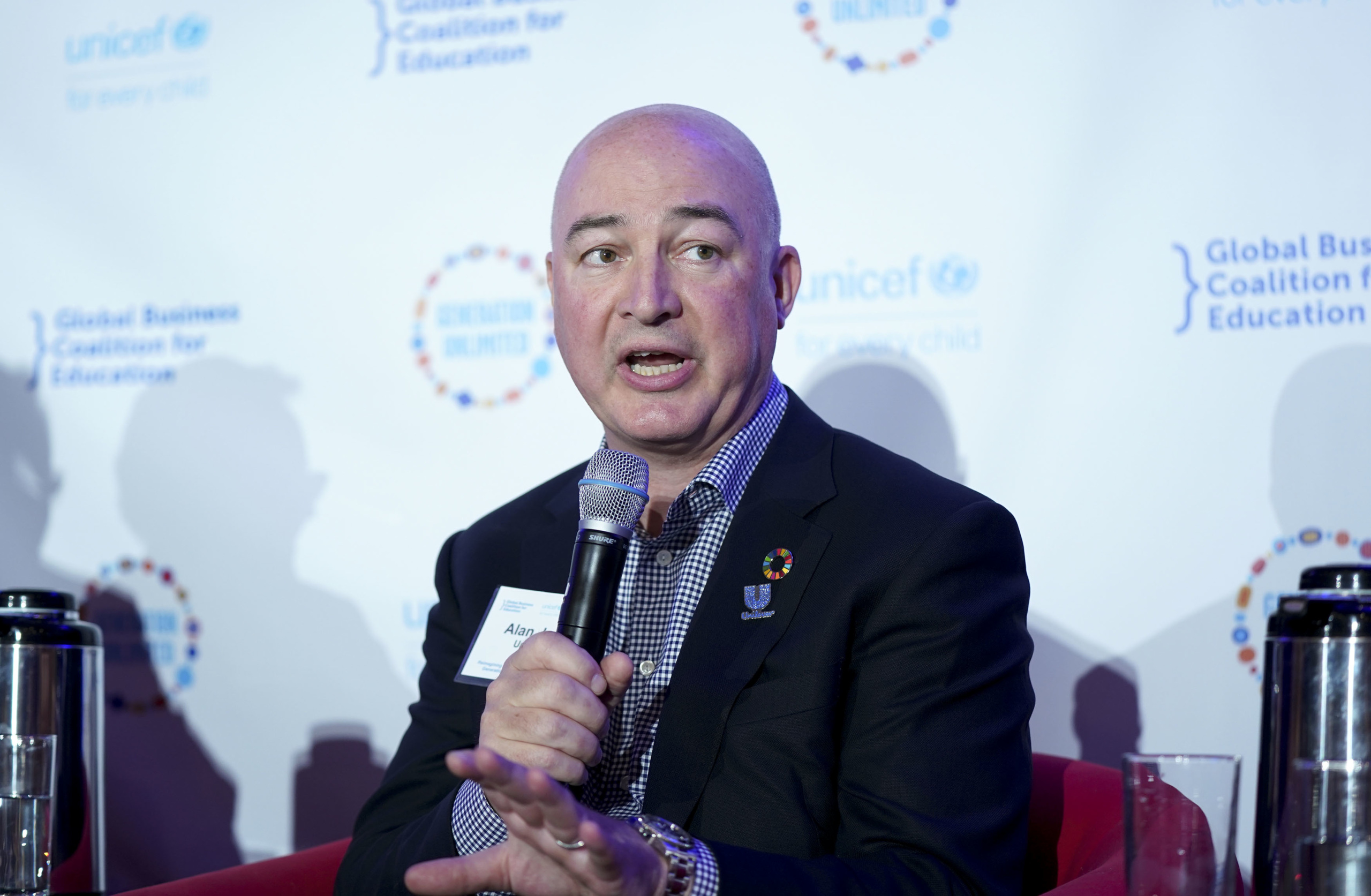
“The future of work is here already. Work today requires all of us to be in a mood of continuous learning.”
Alan Jope, CEO, Unilever
(Photo: Leigh Vogel / GBC-Education)
Unilever CEO Alan Jope stressed the need for older generations to understand the aspirations of students and young professionals. “We need to create opportunities that they think are important, instead of creating opportunities we think are important,” Jope said.
IKEA Foundation CEO Per Heggenes also highlighted the rapidly changing work environment by saying, “Traditional education cannot keep up.” With so many informal economies, Heggenes stressed the value of teaching young people entrepreneurial skills as part of their formal education.
GBC-Education and Generation Unlimited will continue to build connections between education and the skills needed for the future of work by forging powerful partnerships among leaders in the global community.
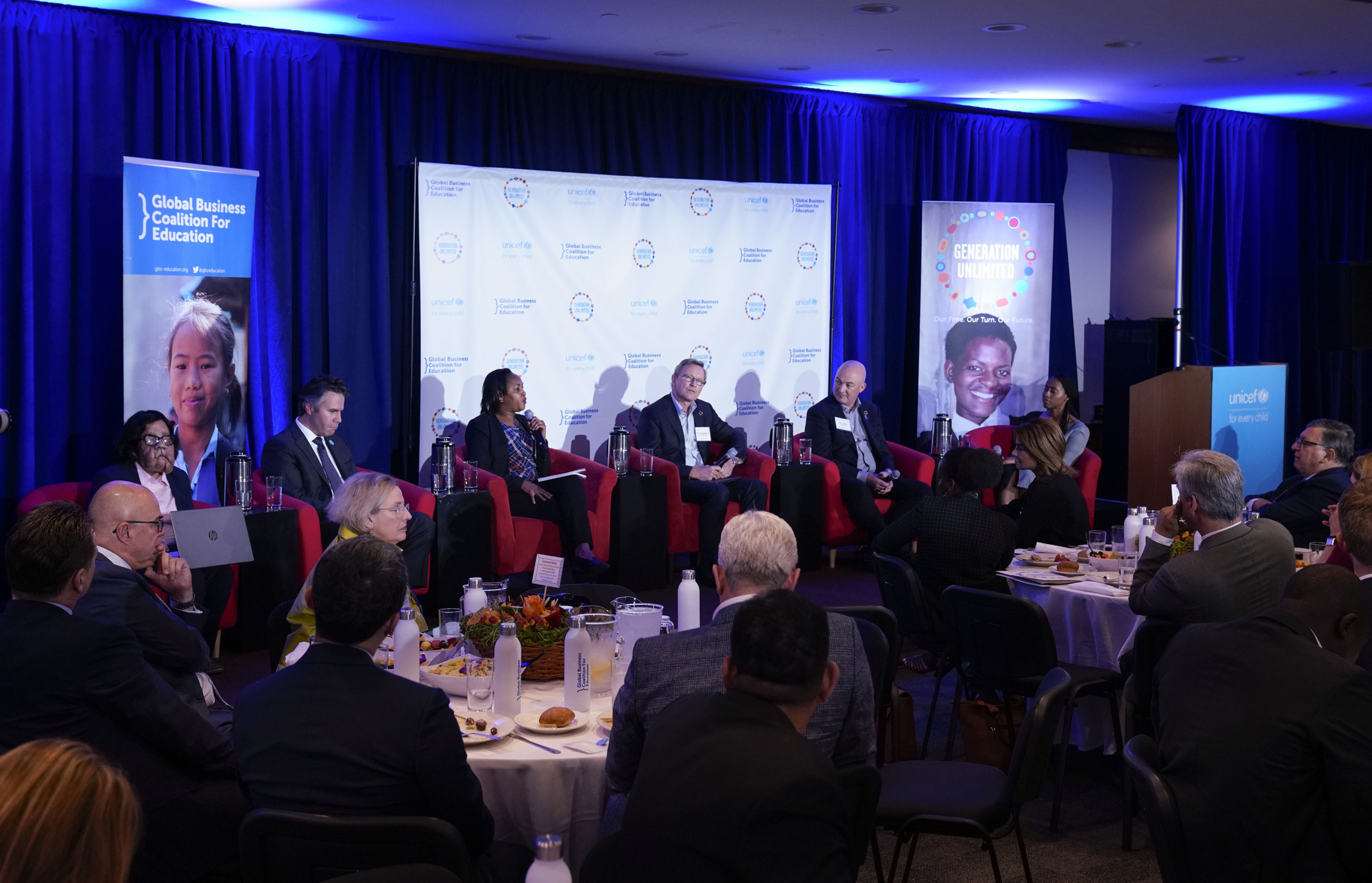
(Photo: Leigh Vogel / GBC-Education)
Youth Perspective on the Future of Work
Last year, GBC-Education and Deloitte released the Preparing tomorrow’s workforce for the Fourth Industrial Revolution report. Part of that research revealed that of the young people surveyed, 39% claimed that school does not provide the skills needed for work.
One of the most inspiring moments during this year’s event included a collective of youth ambassadors who addressed the concerns of their peers and called on the business community to take action.
“The private sector needs to listen more to young people,” said Generation Unlimited Board Member Saddam Sayyaleh. “Youth are advancing innovations and creating solutions to the government’s failings.”
Javita Nauth, a Theirworld Global Youth Ambassador from Guyana, mentioned the need for more opportunities for young people in South America to fill the skills gap saying, “If we can do that – we can give them a hand up”.
Kanchan Amatya another young Generation Unlimited Board Member from Nepal, said, “South Asia is home to the largest population of young people, with 1 billion people under 24.” Citing the miss-match between skills taught in school and the skills employers are seeking in that region, Amatya went on to emphasize that, “We have failed miserably to tap into their energy and enthusiasm.”
Calling on global leaders in the room, Wanja Maina, a Theirworld Global Youth Ambassador from Kenya, emphasized that “leaders need to understand the issues of young people” in order for young people to have hope for their futures.
The panel of young leaders believe that government and business have a responsibility to collaborate to ensure alignment between what is being taught by education systems and what is needed from the next generation of employees.
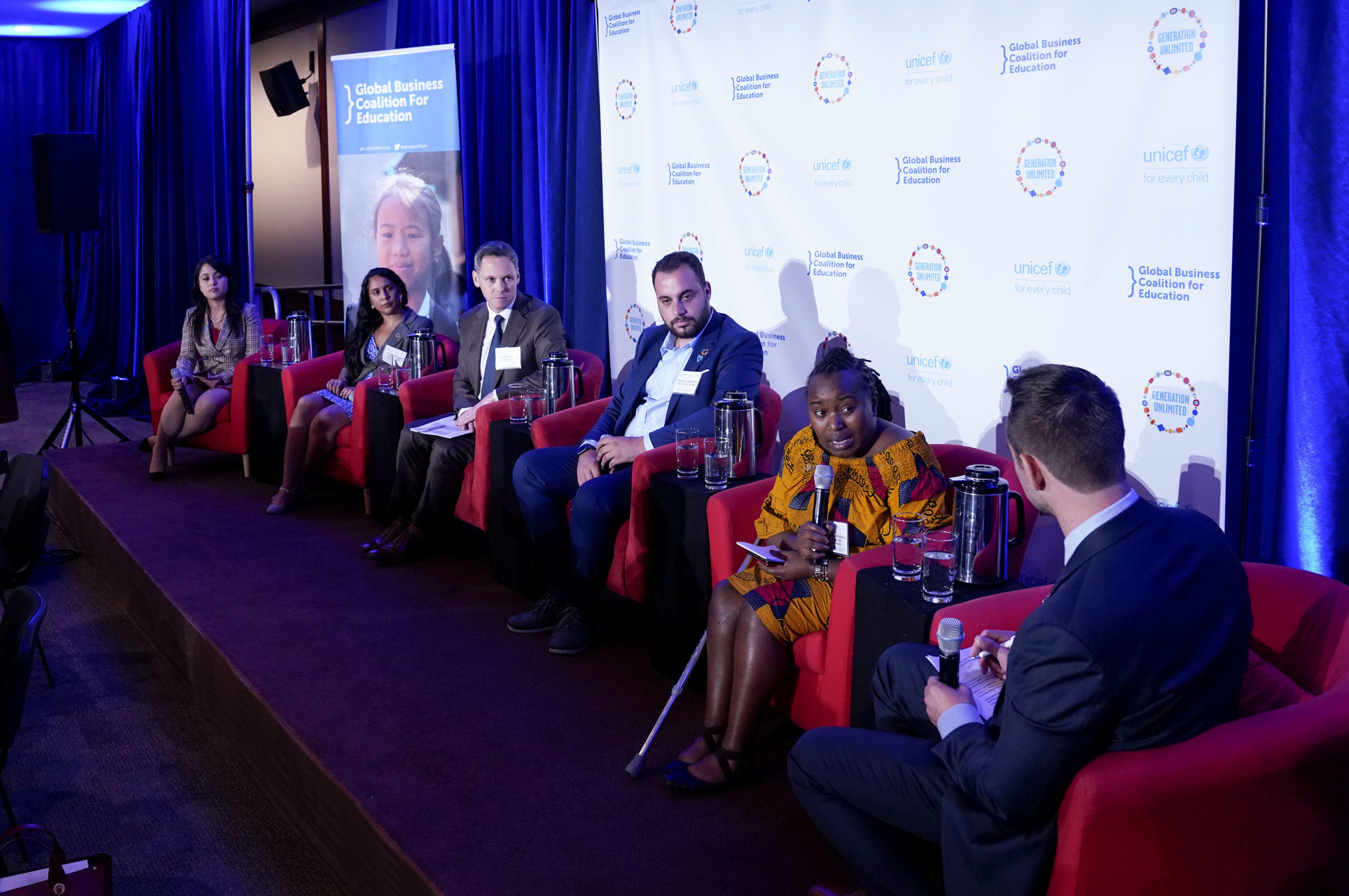
(Photo: Leigh Vogel / GBC-Education)
Conclusion
UN Special Envoy for Education Gordon Brown closed the event, saying, “We can bridge the gap between what young people are and what they can become.” Through collective action from government, civil society, business, and young people, we can empower the next generation with the necessary knowledge and skills to be competitive in the 21-century labor market.
Reimagining Education: Preparing the Next Generation with Skills for the Future is another key milestone in this collaboration between GBC-Education and Generation Unlimited, and both organizations optimistic about the new ideas and commitments made during this year’s UNGA.
